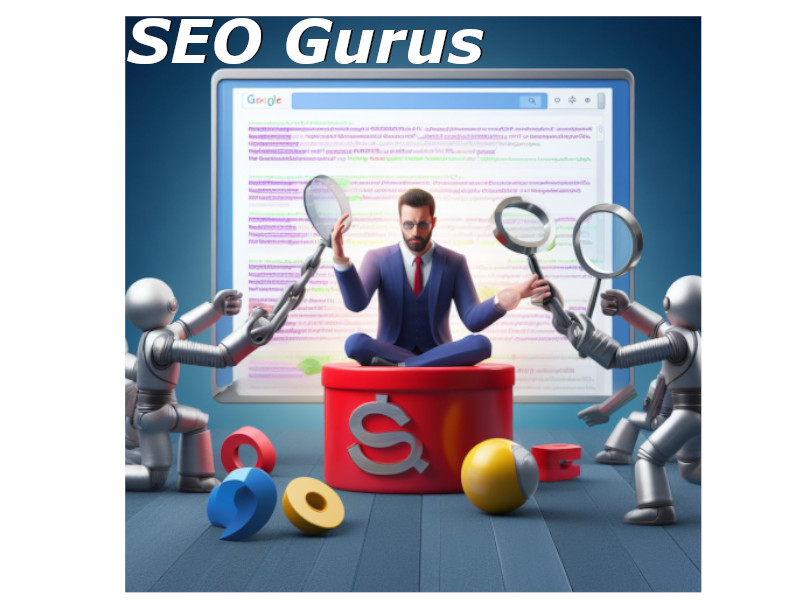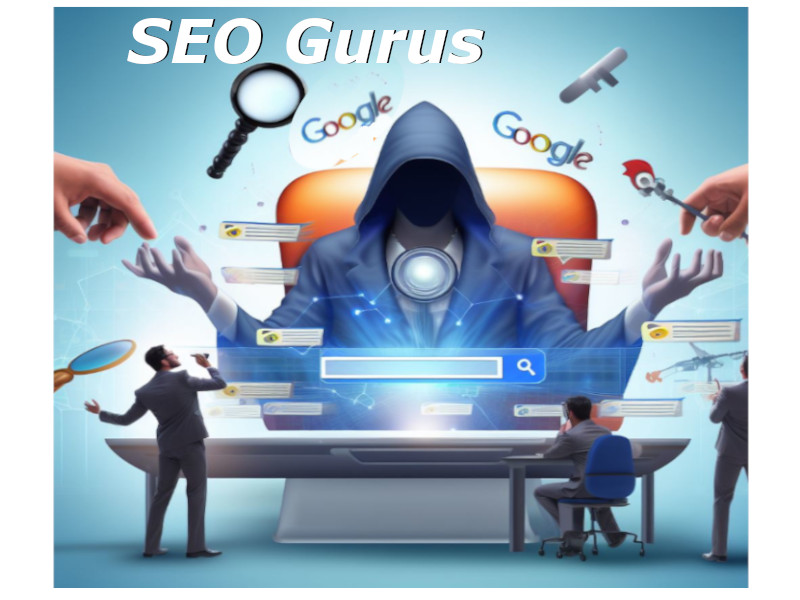The Waning Influence of SEO Gurus in the Age of AI

The first online transaction took place in 1994 when a man sold a CD to a friend over the internet. Since then, e-commerce has grown exponentially, and the internet has become an integral part of our lives. In fact, it is difficult to imagine a world without online shopping, social media, and search engines.
SEO (Search Engine Optimization) has become synonymous with online marketing and advertising, and many websites are designed with the primary goal of selling products or services. However, it is important to note as mentioned above, that the internet has always been a platform for commerce, even before the advent of SEO.
SEO, or Search Engine Optimization, is the practice of optimizing websites and web pages to rank higher in search engine results pages (SERPs). The original concept of SEO was to make it easier for search engines to crawl, index, and understand the content on a website so that it could be presented to users who were searching for relevant information.
Doing SEO is less straightforward than buying the advertising space labeled "Sponsored"above organic search results. The objective is to tell the algorithm whatever it needs to hear for a site to appear as high as possible in search results, leveraging Google's supposed objectivity to lure people in and then, usually, show them some kind of advertisement. Over time, SEO techniques have spread and become insidious, such that googling anything can now feel like looking up for example "hover" in the dictionary and finding a definition that sounds both incorrect and suspiciously as though it were written by someone promoting a Dyson product. This practice seems to have successfully destroyed the illusion that the internet was ever about anything other than selling stuff.
However, over time, SEO has become a complex and ever-changing field that is often associated with "black hat" tactics and spammy practices. It is seen as a magical art form - a way to game the system and get websites ranking high in Google for minimal effort. SEO "gurus" and "ninjas" promised the moon with their tactics and charged exorbitant fees. Many SEO practitioners have been accused of using unethical methods to manipulate search engine rankings and drive traffic to their websites. This has led to a decline in trust among users and search engines alike.
But as Google's technology advanced, most of those unsavory techniques have become ineffective. Google got better at detecting and filtering out spam and low-quality content. Changes like Penguin, Panda, and Hummingbird forced SEO gurus to change their approach or risk getting penalized.
Today, "good SEO" is about understanding search intent and creating websites that offer a great user experience. Tactics like keyword research, site speed optimization, quality content creation, and link building from authoritative domains are now standard practice. The snake oil salesmen have been forced to reform or relinquish the enterprise.
This democratization of knowledge has diluted the influence of early SEO gurus. Since Google freely shares information on best practices, companies don't need to rely on shady advisors promising quick fixes. The barriers to entry have lowered, taking away the exclusivity.
At the same time, artificial intelligence and machine learning are set to disrupt SEO even further. Google is getting better at understanding content and matching it to search queries without needing keywords. ChatGPT and tools like it can generate natural-sounding, optimized content at scale. Less emphasis on keywords could mean less emphasis on many traditional SEO strategies. However, it is important to note that AI is not a panacea for all the problems associated with SEO. Given time, there is the possibility that AI might actually enhance the insidious operations of SEO so-called gurus.
An emerging critical change following the advent of generative AI is Google's dominance in the advertising space. It has been the dominant player in the online advertising market for many years. However, this dominance has come under scrutiny from regulators around the world who are concerned about Google's anti-competitive practices. For example, the European Commission has opened an investigation into whether Google is dominating the online advertising market at the expense of its rivals. So too has the FTC in the US. Both commissions are concerned that Google is making it hard for other online advertisers to compete by using its dominant position to favor its own services over those of its competitors.
One does not have to be an expert to profess that the rise of AI-powered algorithms will make it difficult for Google to maintain its dominance in the advertising space. AI-powered algorithms are now being used to analyze user intent, context, and relevance to provide more accurate and personalized search results. This means that advertisers can no longer rely on spammy tactics such as keyword stuffing and link schemes to manipulate search engine rankings.
Conclusion:
While human guidance remains essential, the role of the SEO guru as a gatekeeper of secret knowledge seems to be declining. Ethical optimization rooted in creating value for users is rising to take its place. For some who got rich gaming the system, these shifts may signal the end of an era. But for those focused on doing SEO right, the future still looks bright.So, while SEO remains crucial, the cowboy culture that once dominated the industry is slowly being tamed. As AI gains more influence in the world of search, legitimate practitioners will need to adapt to stay relevant. AI-powered algorithms are making it more difficult for Google to maintain its dominant position in the online advertising market. The days of Google manipulation as a business model are coming to a close. And in the long run, that change benefits everyone.

Watch The Video